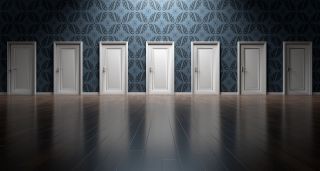Decision-Making
Is Decision Overload Affecting Your Mental Health?
Eenie, meenie, miney, woe: the negative consequences of choice fatigue.
Posted September 4, 2023 Reviewed by Michelle Quirk
Key points
- Having too many decisions can diminish willpower and our sense of self-control.
- The mental fatigue and pressure from decision fatigue can lead to anxiety, depression, regret, and guilt.
- One of the simplest strategies is to adjust our standards from best to good enough.

As humans, we make thousands of decisions every day. Some are routine, like what we're going to wear, eat, read, or watch, whereas others can be quite consequential to our lives and future (e.g., leaving a job, moving to a new place). We also are often faced with decisions that have an impact on the lives and futures of others (e.g., how and what to teach our children, medical treatment decisions). And if that's not stressful enough, in today's advanced and hyperconnected society, the options we have when making these thousands of daily decisions are so vast that it can be difficult for our brains to process all of the available information.
Just think about a simple visit to the grocery store. Do we really need 40 kinds of spaghetti sauce to choose from? Or chips? Or cheese? How many of you have felt dazed searching for something as seemingly simple as packing tape on Amazon? When our options are practically unlimited, our brains experience a sense of chaos, which often leads to bad decisions or no decision at all (which sometimes is, itself, a bad decision). As Debreon Davis, a leadership mentor, coach, TED-speaker, and lifelong educator, explains, "Decision-making and problem solving in the midst of chaos can be overwhelming..." (TEDXOklahoma City, 2022).
According to psychologist Barry Schwartz, a visiting professor at the Haas School of Business at the University of California–Berkeley, and author of The Paradox of Choice, this sense of feeling overwhelmed by so many choices can be exhausting and cause our brains to simply shut down. "The more options we have," says Schwartz, "the less likely we are to make a choice because we're paralyzed [with indecision]; or, if we overcome paralysis and make a choice, we tend to be less satisfied with our choice later. The bar [for obtaining satisfaction] rises with the more options people have to choose from."
This aligns with research that has discovered that having too many decisions to make can diminish willpower and our sense of self-control, causing us to avoid making any decision at all or lead us to make decisions that aren't aligned with our life goals or values (Augenblick & Nicholson, 2016). Making matters worse, the mental fatigue and pressure we often experience as a direct result of decision fatigue and overload can lead to a host of negative emotions, including anxiety, depression, regret, and guilt.
Fortunately, there are relatively simple adjustments you can make to reduce this sense of exhaustion and lessen the negative consequences of decision overload.
- Good enough is often good enough. One of the simplest preventative strategies is to adjust your standards from best to good enough. Think about it. Most of the decisions that we make over the course of the day don't have to be the best choice, explains Schwartz. They simply have to adequately solve or address the issue at hand. For example, why stress over which brand of packing tape is the best when any one you choose will do the job? Although there clearly are some decisions where you should strive to make the best possible choice, the reality is that the large majority of decisions we make on a daily basis do not fall into that category.
- Seek out and embrace opportunities to limit your options. When faced with a decision, narrow your options to a reasonable number. Set a few parameters that you value most and make your choice from those options. For example, if you're searching for a product on Amazon and the most important variables to you are price, color, and shipping speed, set those specific parameters in your search, which will weed out options that you don't want and only show you options that meet your most highly valued conditions. Another way to limit your options is to select three to five options, then create a pro/con list to help you decide the best option for you.
- For important decisions, choose your decision-making time wisely. Although people do it all the time, making important decisions when you're tired or overly stressed is not the wisest time to do so. Experts often equate choice fatigue to a weakened muscle. Would a weightlifter go for the weightlifting record after a day of heavy lifting? Of course not. Neither should you.
- Don't be afraid to press pause. Not all decisions are time-limited, yet we often pressure ourselves to make a choice within a self-created period of time. All this does is increase anxiety and the likelihood of making a poor choice, which often leads to regret and guilt. This is especially true in today's hectic world where so many other aspects of our lives are chaotic, pressure-filled, and time-specific. As Davis points out, "in order to make sound decisions, in order for us to operate in chaos and in crisis, we have to allow ourselves the moment to pause, however long that may be. You have to give yourself a moment to pause, and take deep breath, and stand up straight for it is from there that you can balance emotion with reason for sound decision-making."
While we can't avoid making decisions in our lives, we can reduce the stress we feel when faced with seemingly endless choices by incorporating these four simple strategies into our decision-making. routines.
References
Augenblick, N. and Nicholson, S. (2016). Ballot Position, Choice Fatigue, and Voter Behaviour. The Review of Economic Studies, Oxford Academic (oup.com)
Davis, D. (October 25, 2022). Debreon Davis: One Simple Trick for Making Hard Decisions. TED Talk.
Schwartz, B. (2004). The Paradox of Choice: Why More Is Less. New York: Harper Collins.


